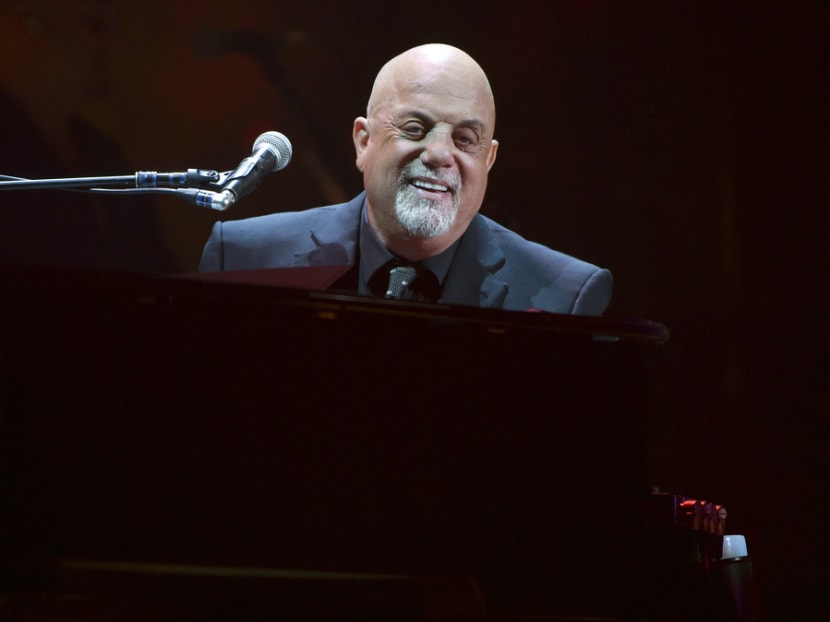Billy Joel has canceled all remaining tour dates across North America and England following a serious health diagnosis that has affected his ability to perform. The music icon, known for timeless hits like Piano Man and Uptown Girl, revealed that he is suffering from a rare brain disorder that has impaired his hearing, vision, and balance—forcing him to take an indefinite break from the stage.

A hidden condition comes to light
In a statement shared via Instagram, the 76-year-old artist disclosed that he has been diagnosed with normal pressure hydrocephalus (NPH)—a neurological disorder caused by an abnormal buildup of cerebrospinal fluid in the brain. According to the Cleveland Clinic, NPH can significantly impact functions like movement, cognition, and memory, often mimicking the symptoms of more common conditions like Parkinson’s or Alzheimer’s disease.
“This condition has been exacerbated by recent concert performances, leading to problems with hearing, vision and balance,” his team explained. Joel is currently undergoing physical therapy and has been instructed by his doctors to pause all performances to focus on recovery.
The physical toll of performance
Though he continued to tour after wrapping his historic Madison Square Garden residency in July 2024, Joel’s health challenges were mounting quietly. In March, he revealed he had undergone surgery and was receiving physical therapy. At the time, his team expressed optimism about a full recovery. It’s unclear if that earlier medical episode was directly related to his current diagnosis, but the timeline suggests that his health has been a persistent concern behind the scenes.
The demands of performing live—especially in large stadiums—can be intense even for younger artists. For a performer in his mid-70s, touring with an undiagnosed neurological condition may have contributed to the worsening of symptoms. Now that a clear diagnosis has been made, Joel’s team is focused on a recovery plan that includes rest, therapy, and medical monitoring.
What is normal pressure hydrocephalus?
Normal pressure hydrocephalus is a rare and often misunderstood condition, affecting primarily older adults. The condition causes fluid to accumulate in the brain’s ventricles, placing pressure on surrounding tissue. Despite the name, the fluid pressure inside the brain often remains “normal” by measurement standards, which can make diagnosis tricky.
Common symptoms include difficulty walking, loss of bladder control, and cognitive decline—often leading to misdiagnosis. Fortunately, treatment can be effective. In many cases, doctors surgically implant a shunt, a thin tube that helps drain excess fluid from the brain into another part of the body, relieving pressure. Recovery often includes physical rehabilitation and long-term care adjustments, but many patients can regain a high quality of life with proper treatment.
An emotional message to fans
Alongside the official announcement, Joel offered a heartfelt message: “I’m sincerely sorry to disappoint our audience, and thank you for understanding.” For an artist whose bond with fans is built on decades of intimate performances and evocative songwriting, stepping away from the stage is no small decision.
Over the years, Joel has become more than just a rock and pop icon—he’s a symbol of enduring musical craftsmanship. His concerts are known for their nostalgic energy, his piano playing a familiar comfort to fans spanning generations. The sudden halt to his tour marks a significant pause in a career that has rarely slowed down.
The end of an era—temporarily
Joel’s canceled summer shows included high-profile stops at Yankee Stadium, Citi Field, and MetLife Stadium—venues that routinely sell out months in advance. Full refunds will be offered to ticket holders, but the emotional cost for fans and the artist alike is harder to measure.
While there is no confirmed timeline for Joel’s return, the emphasis remains on health and recovery. Given the seriousness of the condition, his team is wisely avoiding speculation about future dates. Still, Joel’s previous determination and resilience suggest that if a return is possible, he will make every effort to get back on stage.
The music goes on
Though the tour is paused, Joel’s influence remains as present as ever. His extensive discography continues to resonate with fans old and new, and his legacy as one of America’s most enduring singer-songwriters is already firmly cemented. Whether he returns to the stage or not, his body of work speaks for itself.
In times of uncertainty, Joel’s lyrics often serve as a balm: “Don’t forget your second wind,” he sang in You’re Only Human. As fans around the world wait and hope for his recovery, that line feels more meaningful than ever.




